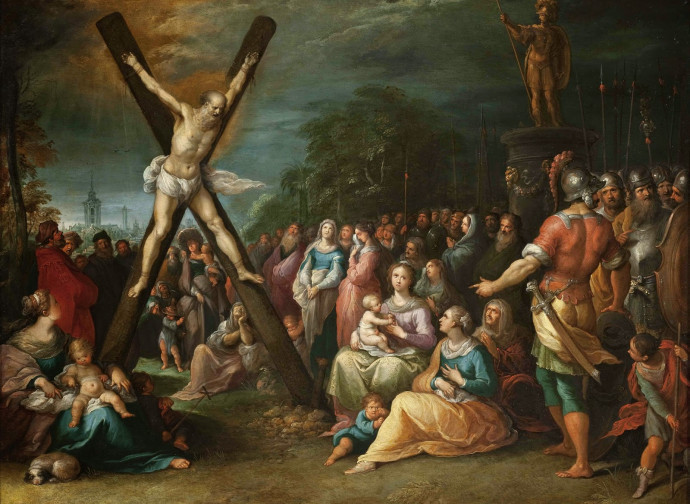Saint Andrew
We always remember that Andrew (ca. 5 B.C.-60 A.D.) was Simon Peter's brother, but we sometimes forget another very important detail: he was the first apostle to lead Peter to the Lord.

We always remember that Andrew (ca. 5 B.C.-60 A.D.) was Simon Peter's brother, but we sometimes forget another very important detail: he was the first apostle to lead Peter to the Lord. Since the evangelist John, who with Andrew had been a disciple of the Baptist, was a direct witness to the fact, he thought it appropriate to narrate it in the first chapter of the Gospel he wrote.
John's narration integrates, also in this case, that of the Synoptics (which is centred on the moment when Andrew and Peter leave the nets to follow Jesus for good and become “fishermen of men”), revealing a backstage in eight verses full of meanings (John 1, 35-42). The author of the fourth Gospel reports that one day the Forerunner had drawn the attention of the two disciples to Jesus who was passing by, saying: “Behold the Lamb of God!”.
Hearing those words, the two followers of the Baptist decided to follow the Lord “and that day they remained with him”. After recalling the time when he transformed their lives (“it was about the tenth hour”, four o'clock in the afternoon), the evangelist John made it clear that one of the two disciples was Andrew. And, wanting to underline the importance of the event, he adds: “He first met his brother Simon and said to him: We have found the Messiah, which means Christ, and led him to Jesus”. It was at that point that Simon was foretold by Christ his mission, which he could not yet understand and which was symbolically enclosed in the announcement of his new name (“you will be called Cephas, which means rock”). That first encounter between Jesus and the Prince of the Apostles, the rock on which the Church was to be founded, was therefore born from an impulse of Andrew's heart.
Saint John Chrysostom commented in a notable homily on this first evangelical impulse of Peter's brother. “Andrew, after having been with Jesus and having learned all that Jesus had taught him, did not keep the treasure to himself, but hastened to his brother to tell him of the wealth he had received. Pay attention to what he said to him: We have found the Messiah”. John Chrysostom continues: “Andrew's word is the word of one who was anxiously awaiting the coming of the Messiah, who was awaiting his descent from Heaven, who was startled with joy when he saw him coming and hastened to communicate the great news to others”, showing “how sincerely eager he was to offer them his hand on the spiritual journey”.
Andrew is mentioned in other significant passages, such as the episode of the multiplication of the loaves and fishes (John 6:8-9) and that of the Greeks who want to see Jesus (John 12:20-22). Chapter 13 of Mark also reports that the apostle was with Peter, James and John when the four - on the sidelines - questioned the Master about the signs of the end times. According to tradition, after Jesus' Ascension, Andrew preached the Gospel in Asia Minor and Scythia, an area that in ancient times included part of Romania, Ukraine and southern Russia, nations that have him as their patron saint. He suffered martyrdom in Greece, in Patras, where he was crucified on an X-shaped cross (initial of Christ in Greek), now commonly known as St Andrew's Cross. He chose it because - like his brother Peter, who was crucified upside down - he considered himself unworthy to die in the same way as the Lord.
Patron of: rope makers, paralytics, fishermen, fishmongers, young women looking for a husband.
